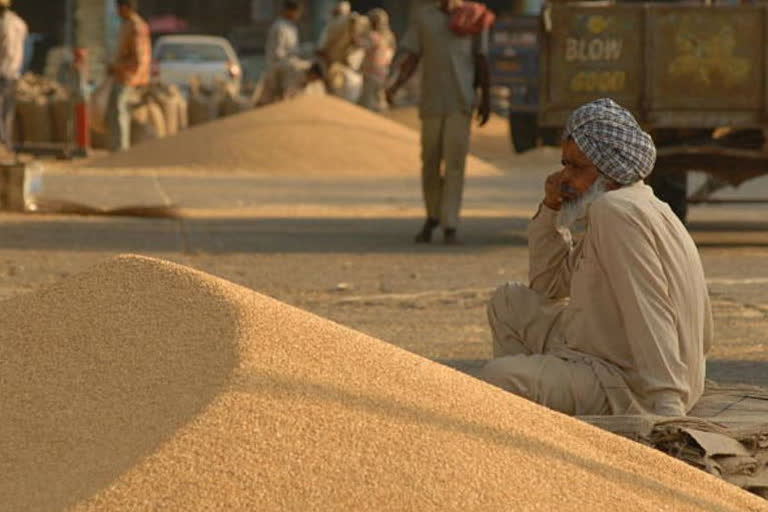Hyderabad: At the onset of monsoon and the start of agriculture season, after sowing operations, the peasantry is always uncertain whether their toil will pay dividends or will result in disaster. This has been the story every time in a predominantly agriculture-based country like India.
Insufficient insurance coverage is adding fuel to the already existing testing conditions of this unorganized sector. Since the initial recommendations of Prof Dandekar in 1979 that sufficient security is necessary to the farmer in times of crisis, the crop insurance scheme has undergone many changes.
The concept of crop security, ' Pradhan Mantri Fasal Bima Yojana' announced four years back took so many turns and twists, but comprehensive insurance to crops still looks like a distant dream! The agriculture ministry, which has been restricting crop insurance coverage to a maximum of 23 per cent for decades, has announced that with the Modi Yojana, more than half the farmers will be covered in two to three years.
But, in reality, the fact that even after the lapse of two farm seasons, the tendency of dodging payments of thousands of crores of rupees is undermining the spirit of the scheme. In spite of the timely payment of premium, the inordinate delays in reimbursement of the nominal compensation in times of crisis is annoying the farmers. Until last year, the premiums were invariably deducted from the crop loans being disbursed by the banks.
Also Read: Farmers of border areas affected by disputes with Nepal
Since the relaxation of rules and the option given to farmers, the number of participants in the Fasal Bima Yojana is depleting. In the case of total crop failure, where is the security to the farmer in times of crisis? The factors that made the crop insurance a mockery for about four decades now are an open secret.
Unreasonable conditions like the application of insurance coverage only to the borrowers of loans, calculation of average annual yield, etc., have deprived lakhs of farmers the benefit of the scheme. The CAG report has pointed out that restricting the insurance coverage only to the bank loan borrowers has deprived the opportunity to more than three-fourths of the small and poor farmers. Farmers who joined the scheme in Jharkhand, Karnataka and Madhya Pradesh, did not yet get even a rupee compensation - is depressing the farmers.
Instead of correcting the loopholes, the tendency of the government to shed its responsibility by making the scheme voluntary and optional is quite contrary to the strict approach of countries like Japan, Cyprus, Canada, where the crop insurance schemes are being operated systematically.
The farmers are assured of immediate help even in the face of grave natural calamities. Brazil has the most ideal system of securing crops against famines and floods. Even till today, Swaminathan's recommendation to ensure insurance for all crops in all districts of the country is not implemented.
The centre should initiate an extensive action plan in collaboration with the states to alleviate the farmers from the crop losses and ensure profitable farming practices. It is necessary to evaluate the nature of soils in the country and their suitability to different crop varieties and explore export potential after meeting the domestic needs.
Farmers participating in the implementation of the plan should be endowed with all types of subsidies and incentives, including crop insurance. This will lead to a sure way of ensuring food security to the country.
Also Read: Construction, textiles industries struggling in absence of migrant workers



